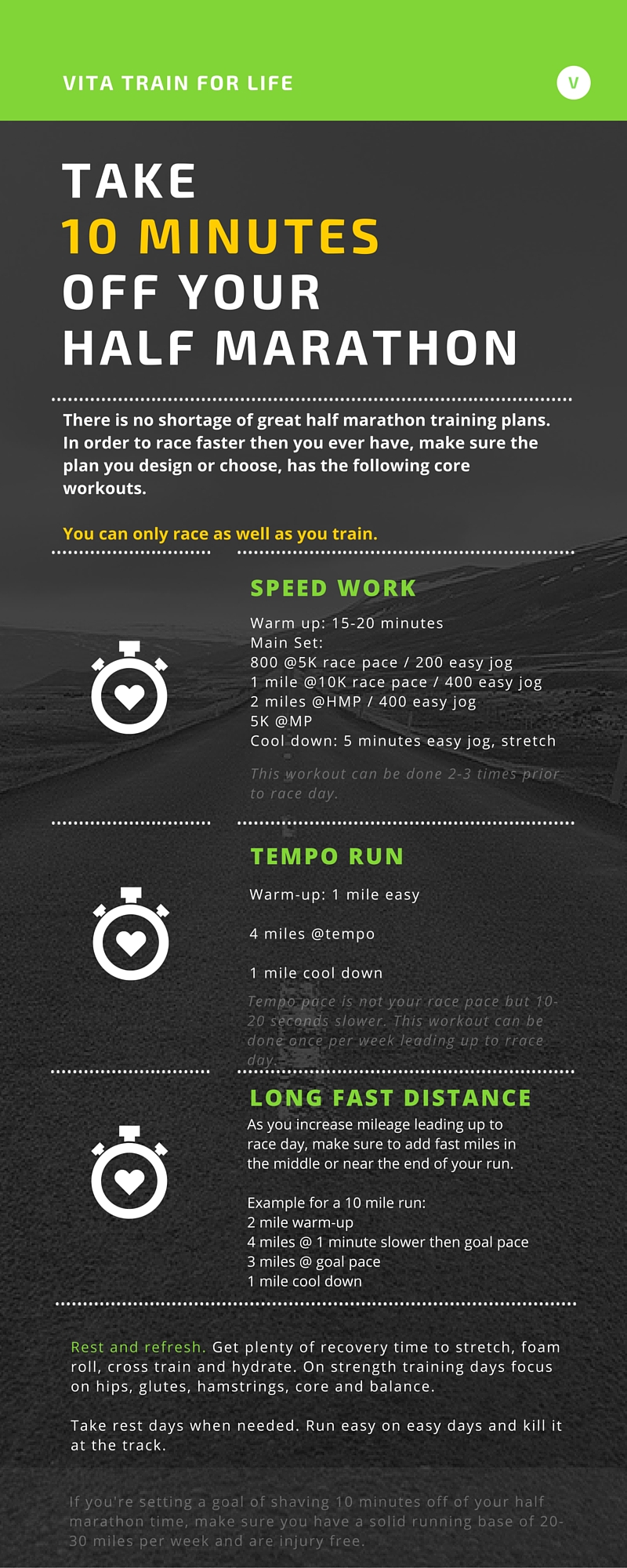How to Improve Marathon Time? How to Reduce Marathon Time
To improve marathon time, focus on consistent training, proper nutrition, and adequate rest. Incorporate speed workouts and long runs to reduce marathon time effectively.
Marathon training requires dedication and planning to achieve optimal performance. By following a structured training plan, staying hydrated, and getting enough sleep, runners can enhance their endurance and speed. In addition, cross-training, proper footwear, and monitoring heart rate can also contribute to better marathon times.
It’s essential to listen to your body, adjust training as needed, and remain disciplined in your approach to reach your performance goals. Remember, consistency and perseverance are key in improving your marathon time.
Setting Realistic Goals
Setting realistic goals is essential for improving your marathon time. By evaluating your current performance and establishing achievable targets, you can significantly enhance your training and race-day performance.
Identifying Your Current Marathon Time
Begin by assessing your current marathon time. Review your previous race results and identify the average time it takes you to complete a marathon. Consider factors such as terrain, weather conditions, and your physical and mental state during those races.
Determining Your Target Time
Setting a target time for your next marathon requires careful consideration. Analyze your current training regimen, as well as any potential areas for improvement, to determine a realistic goal. Factor in incremental progress to avoid setting a target that is too ambitious and could lead to injury or demotivation if not achieved.

Credit: stories.strava.com
Following A Structured Training Plan
When it comes to reducing your marathon time, following a structured training plan is crucial. Implementing a well-thought-out regimen can help you improve endurance, speed, and overall performance. Here are some key strategies to consider:
Increasing Weekly Mileage Gradually
Progressively increasing your weekly mileage can enhance your endurance and stamina for the marathon. Start with a comfortable base and add mileage gradually to prevent overtraining or injury.
Incorporating Interval And Tempo Runs
Integrating interval training and tempo runs in your routine can boost your speed and cardiovascular fitness. These high-intensity workouts help improve your overall pace and increase your lactate threshold.
Including Strength Training And Cross-training
Strength training helps prevent injuries and improves muscle efficiency while cross-training diversifies your workout routine. Incorporate activities like swimming, cycling, or yoga to improve overall fitness and prevent burnout.
Optimizing Race-day Strategy
Creating A Pre-race Routine
Stick to familiar routine to reduce race-day stress.
- Get enough sleep night before race.
- Eat light, balanced meal morning of race.
- Arrive at race venue early to avoid rushing.
Planning Your Pacing Strategy
Start at steady pace to avoid burning out early.
- Break race into segments with target times.
- Use a GPS watch or race markers for pacing.
- Save energy for strong finish sprint.
Fueling Effectively During The Race
Stay hydrated and energized for optimal performance.
- Take water or sports drinks at aid stations.
- Consume energy gels or snacks every 45-60 minutes.
- Avoid trying new foods on race day.
Prioritizing Rest And Recovery
“Prioritizing Rest and Recovery” is crucial for improving marathon time. Proper rest and recovery not only aid in preventing injuries but also enhance overall performance. Here are some key strategies to ensure that you are prioritizing rest and recovery in your marathon training:
Getting Enough Sleep
Adequate sleep is essential for recovery and muscle repair. Aim for 7-9 hours of quality sleep each night to optimize your body’s ability to heal and rejuvenate.
Incorporating Rest Days Into Your Training
Scheduled rest days are vital for allowing your body to replenish and adapt to the physical stress of training. Include 1-2 rest days per week in your marathon training plan to avoid overtraining and burnout.
Utilizing Recovery Techniques
Incorporate active recovery methods such as foam rolling, stretching, and massage therapy to enhance circulation and reduce muscle soreness. Additionally, consider cross-training activities that are gentler on the body, such as swimming or cycling.
Seeking Professional Guidance
Improving your marathon time requires a strategic approach and the right guidance. Seeking professional help can be a game-changer in your journey towards achieving your goals. Whether you are a beginner or an experienced runner, investing in professional guidance can provide valuable insights, personalized training plans, and expert advice to help you reduce your marathon time. In this blog post, we will explore two key ways to seek professional guidance: working with a running coach and getting a professional running analysis.
Working With A Running Coach
Working with a running coach is a smart move for runners of all levels. A running coach is a seasoned professional who can tailor a training program to suit your specific needs and help you reach your full potential. They will provide you with personalized guidance, monitor your progress, and adjust your training plan accordingly. Here are some benefits of working with a running coach:
- Customized Training Plan: A running coach will design a training plan based on your current fitness level, strengths, and weaknesses. This personalized approach ensures that your training is focused and efficient.
- Expert Advice: A running coach has extensive knowledge and experience in marathon training. They can provide valuable tips on technique, nutrition, injury prevention, and race-day strategies.
- Motivation and Accountability: With a running coach, you will have someone to keep you motivated and accountable. They will provide the necessary encouragement and support to help you stay on track towards your goals.
Getting A Professional Running Analysis
Another important aspect of seeking professional guidance is getting a professional running analysis. This analysis involves a comprehensive assessment of your running technique, form, and biomechanics. Here’s why it’s crucial:
- Identify Imbalances: A professional running analysis can identify any imbalances or weaknesses in your running form that may be hindering your performance. By addressing these issues, you can improve your efficiency and ultimately reduce your marathon time.
- Optimize Technique: A running analysis can help pinpoint areas where you can make technique modifications to maximize your endurance and speed. Small adjustments, such as your stride length or arm swing, can have a significant impact on your overall performance.
- Injury Prevention: By analyzing your running mechanics, a professional can identify potential injury risks and suggest corrective measures. This proactive approach can help you avoid injuries and ensure that you stay on track with your training.
By working with a running coach and getting a professional running analysis, you can enhance your marathon training and pursue your goal of improving your marathon time effectively. These professional insights and personalized guidance will provide you with the tools you need to push your limits, stay motivated, and achieve your desired results.
:max_bytes(150000):strip_icc()/Dotdash-VWFit-what-is-a-good-time-for-running-a-half-marathon-2910898-v12-2005052e84014d4aad9ade7c84c51a88.jpg)
Credit: www.verywellfit.com

Credit: www.runtothefinish.com
Frequently Asked Questions Of How To Improve Marathon Time? How To Reduce Marathon Time
How Do You Slow Down To Speed Up A Marathon?
To slow down and improve your marathon time, focus on consistency and patience. Gradually build mileage and incorporate strength training to prevent injury. Listen to your body, incorporate rest days, and follow a structured training plan. Develop a balanced nutrition plan and stay hydrated.
Consistency and discipline will eventually lead to faster marathon times.
How Can I Reduce My Running Time?
To reduce running time, focus on building endurance, increasing speed with interval training, and incorporating strength training. Improving running form and technique, getting adequate rest, and staying consistent with your training will also help. Additionally, ensure proper nutrition and hydration for optimal performance.
How Do You Sustain Marathon Pace?
To sustain marathon pace, focus on proper training, nutrition, hydration, and pacing strategies. Consistent practice and mental resilience are key.
Conclusion
Improving your marathon time requires a combination of effective training, proper nutrition, and mental resilience. By following a structured training plan, focusing on strength and flexibility, and fueling your body correctly, you can make tangible gains in your performance. Remember to stay consistent and patient, as progress takes time.
Keep pushing your limits and believe in your ability to achieve your marathon goals.







